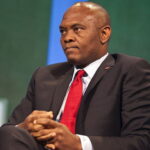The banking sector remains resilient as our nation and indeed the world continue to endure incessant, mutating and perilous socio-economic shocks.
The expected recovery of the global economy from the COVID-19 shock was wiped away and replaced by new shocks from the Russian-Ukraine war and the unprecedented stalling of the Chinese economy.
These strong headwinds retarded growth momentum, worsened global conditions, amplified risks and uncertainties, and dampened global outlook.
Against the backdrop of the widespread slowdown in many economies and the risk of an imminent recession, the International Monetary Fund (IMF)repeatedly downgraded short-term global growth prospects, as nearly one-third of the world’s economies is projected to contract next year.
Why we establish non-interest banking in Misau – Emir
Gusau: Pele’s contributions to football are ineffable
As at January 2022, headline inflation in Nigeria was 15.60% and rose to a peak of 21.47% in November. Meanwhile, food inflation consistently outpaced headline inflation and core inflation during the year. For the basket of goods and services consumed by the average Nigerian, costs have accelerated by between 50% and 100% in 2022. The inflationary situation was the worst in recent history and the impact on citizens and the SMEs was very devastating. The World Bank reported that 5 million Nigerians have been pushed into poverty in 2022 amid a slump of purchasing power by 35% driven largely by surging inflation. In a sustained fight against inflationary pressures, the Central Bank of Nigeria (CBN), raised the Monetary Policy Rate (MPR), by 500 basis points within four consecutive MPC meetings from 11.5% in April to 16.5% in November.
Accordingly, and like many other countries, Nigeria’s GDP growth fell gradually from 5.03% in 2021q2 to 3.98% in 2021q4, 3.54% in 2022q2 and 2.25% in 2022q3. Nigeria’ GDP is valued at over N200 trillion [in nominal terms] as at the third quarter of 2022. The World Bank projected a growth rate of 3.11% for 2022 and 2.9% in 2023.
Given the enormity of the macroeconomic headwinds and the numerous fiscal and monetary policy shocks, the Nigerian economy could be judged to have demonstrated remarkable resilience in 2022.
The Nigerian banking industry played a major role as it attracted $1.47 billion as capital inflows in the first half of 2022, an increase of 109.8% compared to $698.2 million received in the second half of the previous year and 46.5% higher than the $1bn inflows recorded in the corresponding period of 2021.
The banking sector recorded the highest foreign inflow in the period under review compared to other sectors in the Nigerian economy, accounting for 47.1% of a total of $3.11bn capital inflows between January and June 2022.
Despite contending with double-digit inflation and a hike in operating expenses, most Nigerian banks reported good profit in their half-year reports in 2022. An assessment of CBN’s financial stability indicators showed that industry liquidity and non-performing loan ratios both improved by 130 basis points (up) and 75bps (down), respectively, to 42.6% and 4.95%.
Although, the Capital Adequacy Ratio at 14.1% underperformed the June 2021 level by 140bps, all the indicators beat the prudential guideline limits of 30% (LR), 5% (NPLs), and 13% (CAR), respectively, despite myriads of challenges in the business environment.
Forex shortage, RT 200 and Japa
The Nigerian foreign exchange market faced a serious crunch which strained the reserves and stifled the value of the naira. As noted by the governor of the CBN, Godwin Emefiele, the official foreign exchange receipt from crude oil sales (the country’s main source of FOREX) into official reserves dried up steadily from above $3bn monthly in 2014 to an absolute zero dollar.
The number of student visas issued to Nigerians by the UK alone also increased from an annual average of about 8,000 visas as at 2020 to nearly 66,000 in 2022, which implies an eight-fold surge to about $2.5bn annually in study-related foreign exchange outflow to the UK alone.
To diversify from dependence on oil inflows, and minimise the debilitating pressures in the foreign exchange market, the CBN with support from the Bankers’ Committee launched the RT200 programme in February to stimulate non-oil exports with a $200bn foreign exchange income target in three to five years.
Emefiele said Nigeria received $4.987bn as non-oil export inflows under the programme this year, which is significantly higher than the $3.190bn repatriated by non-oil exporters in 2021.
Nigerian banks were not exempted from the ‘Japa syndrome’ as it witnessed an exodus of tech talents in the year under review.
Naira depreciation, redesign, withdrawal limit
According to the World Bank, the official exchange rate depreciated by 5.2% in 2022, as at November; while the parallel market rate depreciated by 40%. Parallel market premium widened from 37% in January to 71% in November 2022. The bank said, “Nigeria exchange rate policy settings are stifling business activities, investment and growth, and amplifying macroeconomic risks.”
At a point in November, the naira exchanged for over N900/$1 and N1000/£1 in the parallel market.
This is despite the many policies by the CBN, including cracking down on AbokiFX, a popular forex publishing platform as well as discontinuance of foreign currencies sale to Bureaux de Change (BDC) operators in the country in 2021. The Economic and Financial Crimes Commission (EFCC) also raided some BDC operators in Lagos, Abuja and Kano in a bid to tackle the rising exchange rate but this did not stop the naira depreciation.
The CBN also redesigned three out of the existing eight banknotes which became legal tenders from December 15.
Undeterred by criticism, the CBN governor, Emefiele, was able to get President Muhammadu Buhari to unveil the redesigned naira notes on November 23.
While the CBN said new security features have been introduced, the obvious change was the colour of the notes.
The new N200 note has a red colour, the N500 note comes in green colour while N1000 note has a blue colour. Little wonders, many labelled the new notes as ‘repainted,’ ‘filtered’ and ‘restructured’.
However, the apex bank maintained that the failure of the country to redesign the country’s currency for almost 20 years, exposed it to counterfeiting, hoarding of naira banknotes outside the banking system, and the shortage of clean and fit banknotes in circulation among others.
Weeks after announcing plans to reduce the weekly over-the-counter cash withdrawal limit for individuals to N100,000 and that of corporate organisations to N500,000, the CBN was forced to make an upward review to N500,000 and N5 million for individuals and corporate organisations respectively.
Emefiele, DSS and Terrorism financing
However, the most shocking news from the sector in 2022 was the suit filed at the Federal High Court Abuja by the Department of State Services accusing the CBN governor, Emefiele, of terrorism financing. Emefiele has not been seen in public since the drama started as it is alleged that the secret police are on the lookout for the apex bank governor.
Experts’ views and looking ahead
The 2022 Afrinvest Banking Sector Report has revealed that despite daunting economic challenges, commercial banks in the country recorded modest improvement in all regulatory indicators.
The report’s assessment of CBN’s financial stability indicators showed that Industry Liquidity (Liquidity Ratio) and Non-Performing Loan ratios both improved by 130 basis points (up) and 75bps (down), respectively, to 42.6% and 4.95%.
The Centre for the Promotion of Private Enterprise, CPPE, which called for a resetting of monetary policy, noted that the current Cash Reserve Ratio, CRR, has made it difficult for the banks to play their primary role of financial intermediation.
“The current CRR of 32.5% and MPR of 16.5% imposed on the Nigerian banks are among the highest globally. High CRR in particular has become a key impediment to financial intermediation by the banks. Even more disturbing is the fact that effective CRR is as high as 50% or more for some banks,” it said in a report by its director, Dr Muda Yusuf, while calling for a reduction in CRR so that the banks can be better placed to play their primary role of financial intermediation in the economy.
Agusto & Co. in its 2022 banking report opined that, “Although the pandemic-related headwinds have abated to an extent, the heterodox regulatory practices and insecurity issues remain. Furthermore, the forthcoming elections and growing budget deficit have forced the FGN to modify several extant tax legislations, which would have a significant influence on the banking industry. Nevertheless, the financial services industry (dominated by the banking sector)’s contribution to the country’s GDP has been resilient, rising year on year by 70 basis points to account for a higher 3.5% of Nigeria’s GDP in 2021.”
Looking ahead to 2023, banks will need to become more resilient and reinvent their business models to ride out the current volatile period and achieve long-term growth and profitability as attested to in McKinsey’s Global Banking Annual Review for 2022.

 Join Daily Trust WhatsApp Community For Quick Access To News and Happenings Around You.
Join Daily Trust WhatsApp Community For Quick Access To News and Happenings Around You.


